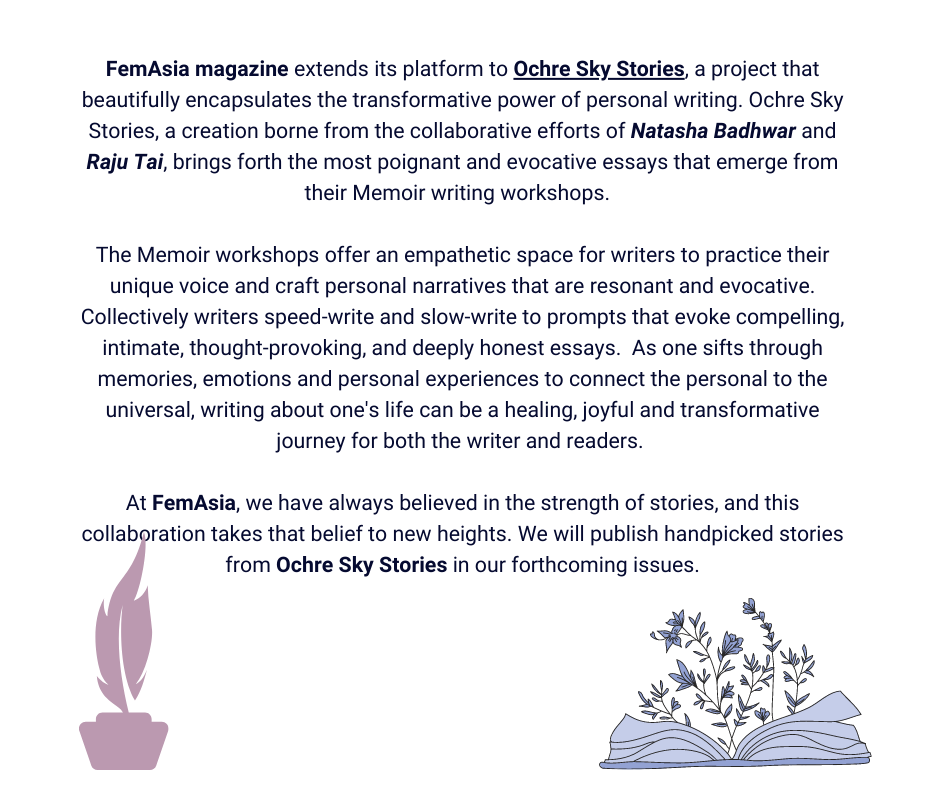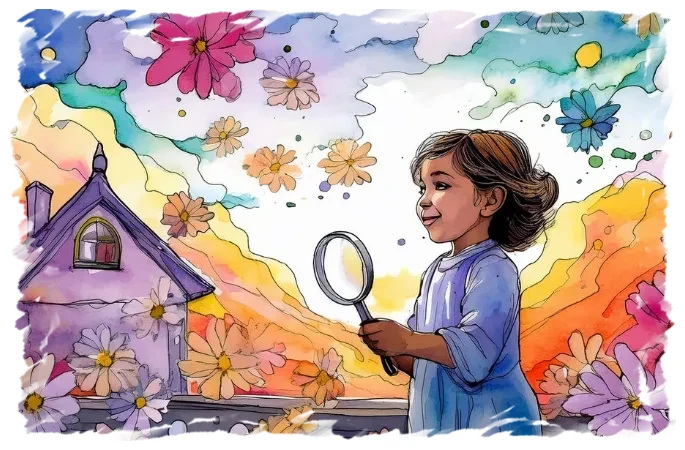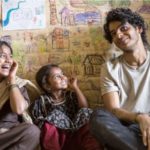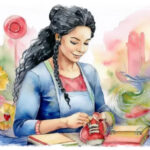A little girl burnt my house down.
Dancing on the rooftop, warm summer sun, magnifying glass in hand.
She giggled and burnt my house down.
In this dream, I was six years old and in my school bus moments before my house caught fire.
I was in psychoanalysis for a year. This included the time I was pregnant. Dreams will never be without meaning to me.
Adam Phillips compares psychoanalysis to literature (as opposed to the psy-subjects’ general push towards alignment with the sciences). It is the stories we tell ourselves, he says. A way of redescribing our experiences to make sense of them. My vivid postpartum dreams could be explained biologically away as a REM rebound from disrupted sleep, but to me they have been tools for understanding the massive shifts in my identity since giving birth two years ago.
I consented to a hysterectomy in a different dream. A removal of my uterus. Everyone I loved bemoaned the loss of a potential second child- but I want to live and love the one I already have. We are enough.
The central idea of personhood had been Oneness. It had been held with near-delusional fervour that a grand union was possible. A self-actualised life, where all my parts were one. The daughter, the writer, the lover, the friend, the reader, even the doctor. They would all be in sync, a continuum of values flowing down the streams of all that I was, feeding the ocean of my being.
Then I became Mother.
I was fused, one, with this life that grew only because it consumed from my body, and I had never felt more fractured. The violence that I had been quietly capable of, even while chasing the mirage of oneness, had always been forgiven because I had been loved. I had been grateful, if somewhat smug, about this fortune. Early motherhood turned this violence inwards.
I found myself walking down the street, wishing for a bus to run me over. This was not a dream. This was matrescence.
I felt the echoes of Agnes Callard’s writing:
“Giving birth to a baby is, literally, splitting in two, and it is not always clear which one your “I” goes with. Actually, it is clear. It is clearly not you. The one that matters—the real person—is the one whose needs, cries and future you spend all your time attending to. You are reduced to almost nothing, not even half a person.”
I slowly learnt, at least consciously, to accept the hatred that early motherhood comes entangled with. I do not mean hatred of the child, but of the state one finds oneself in. The wreckage of a previous self that in the early days feels alien, false, deceitful, and in such stark contrast to the interminable postpartum purgatory. I want to resist the feeling to balance this sentiment, to say that it also comes wrapped up with love and transformation and unbelievable delight and opening of the heart- because those are expected and acceptable emptions.
It is the hatred that blindsides you.
I now know that the mother-child relationship is one between two people, fused as they are in the early days. Like in any other intimate relationship, one is bound to feel unacceptable feelings. Unlike other relationships, the resolution of these feelings, at least for the mother, cannot come from communicating these feelings to the child. She is not an emotional equal. The mother (or really any caregiver) must often do the job of an underdeveloped prefrontal cortex of the child- the thinking brain that contains impulses, keeps difficult emotions from turning to unacceptable behaviour.
So where do these feelings go? It has been my experience that they find a way out in my dreams. As long as I pay attention to what my dreams are trying to tell me, I am able to function as a whole, acknowledging the complete spectrum of emotions that make me human. This acknowledgment allows me grace and kindness, feelings I rely heavily on in my motherhood journey.
As a four-week-old mother, I had a dream in which I went back to visit my favourite job in London. This was a place where coworkers had felt like friends, where I had learnt to value my worth as a clinician. In my dream, I felt invisible. Worse, I felt ignored. Those who remembered me seemed not to care that I had returned. Work friends appeared like strangers, uncanny valleys of themselves.
I thought I had worked through the enmeshment of work, identity and self-worth. Was I missing work after all? I had taken the entire years’ worth of maternity leave available to me firmly believing that I would not miss work. The dream was indicating something I had been unwilling to accept: the perceived value of not contributing financially to the family in a manner I had been used to kept coming up for me through the year of maternity leave in painful ways.
I later dreamt that my parents cloned my newborn to save me the trouble of bearing another. I was furious. How could you? Did you even bother to ask me? I cannot love this child. At this point, I was sleep deprived beyond measure. My baby had a cold and was up every hour breastfeeding. My exhausted mind had displaced a hatred I would not allow myself to feel on an imagined clone so I could carry on loving what was real.
In the dream, my parents told me they had given my child company. I woke up very aware that I was an only child, and my dream parents were a part of my own mind giving my only child some company. I still haven’t unpacked this one, afraid of where this may lead.
I also dreamt of a nuclear winter. Awake, I had been reading Ali Smith’s seasonal quartet, feeling quite bleak about the world I had birthed my daughter in.
The plot was elaborate. I was one of four surviving prisoners of war. A guard had let me know that we were to go to a place called Urs- I am not sure if such a place really exists. In Urs, our totalitarian dictator would enter a bunker. The rest of us were to remain outside waiting for whatever was to come. The only escape was to avoid the trip to Urs.
My strategy in this dream was to whine to the dictator. To tire his ears out about my motherly responsibilities till he left me alone in the detention centre while everyone else was taken to Urs. I had no sense of direction or food for survival, but I woke up confident that I would have survived.
I suppose this dream was about hope in a hopeless present, and a reminder of my own (possibly motherly) resilience.
Becoming mother broke me, and left it to me, now broken, to pick up the pieces.
Radical acceptance was the glue that made me whole again.
Dreaming showed me the path to radical acceptance.
I never did figure out if the little girl who burnt my house down was my daughter or me.
This work was written during the Ochre Sky Memoir writing workshop facilitated by Natasha Badhwar and Raju Tai.





Will read it again. Gave it a casual first read. It certainly deserves greater attention.